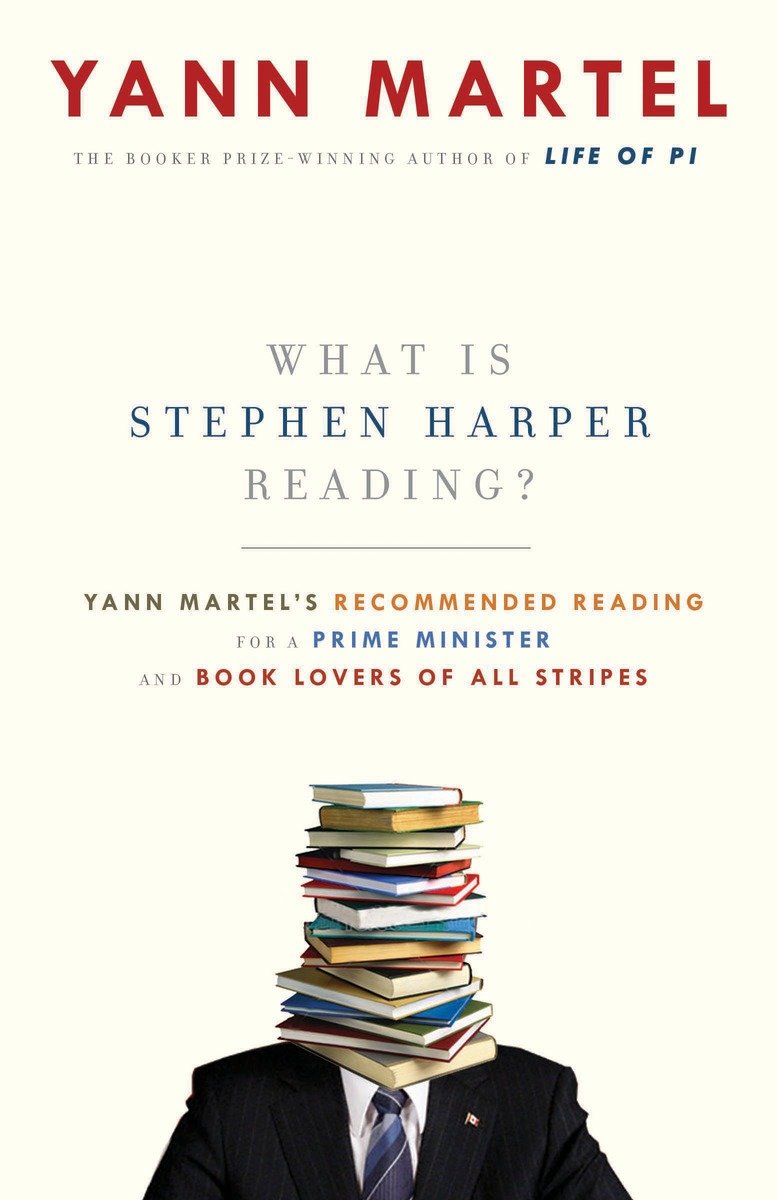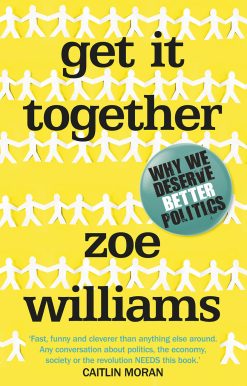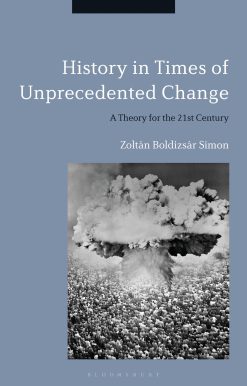Yann Martel’s Recommended Reading for a Prime Minister and Book Lovers of All Stripes: What Is Stephen Harper Reading?
14.00 JOD
Please allow 2 – 5 weeks for delivery of this item
Add to Gift RegistryDescription
“I know you’re very busy, Mr. Harper. We’re all busy. But every person has a space next to where they sleep, whether a patch of pavement or a fine bedside table. In that space, at night, a book can glow. And in those moments of docile wakefulness, when we begin to let go of the day, then is the perfect time to pick up a book and be someone else, somewhere else, for a few minutes, a few pages, before we fall asleep.” From the author of Life of Pi comes a literary correspondence—recommendations to Canada’s Prime Minister of great short books that will inspire and delight book lovers and book club readers across our nation. Every two weeks since April 16th, 2007, Yann Martel has mailed Stephen Harper a book along with a letter. These insightful, provocative letters detailing what he hopes the Prime Minister may take from the books—by such writers as Jane Austen, Gabriel Garcia Marquez and Stephen Galloway—are collected here together. The one-sided correspondence (Mr. Harper’s office has only replied once) becomes a meditation on reading and writing and the necessity to allow ourselves to expand stillness in our lives, even if we’re not head of government.
Additional information
| Weight | 0.23 kg |
|---|---|
| Dimensions | 1.66 × 13.09 × 20.32 cm |
| PubliCanadation City/Country | Canada |
| book-author1 | |
| Format | Paperback |
| Language | |
| Pages | 240 |
| Publisher | |
| Year Published | 2009-10-5 |
| Imprint | |
| ISBN 10 | 0307398676 |
| About The Author | YANN MARTEL is the author of Life of Pi, the #1 international bestseller published in more than 50 territories that has sold more than 12 million copies worldwide, won the 2002 Booker (among many other prizes), spent more than a year on Canadian and international bestseller lists, and was adapted to the screen in an Oscar-winning film by Ang Lee. He is also the award-winning author of The Facts Behind the Helsinki Roccamatios (which won the Journey Prize), Self, Beatrice & Virgil, and a book of recommended reading: 101 Letters to a Prime Minister. Born in Spain in 1963, he studied philosophy at Trent University, worked at odd jobs and travelled widely before turning to writing. In 2021 he was appointed a Companion of the Order of Canada. He lives in Saskatoon with the writer Alice Kuipers and their four children. |
"A splendid read, and his letters outlining the books and what they might offer are wonderful in and of themselves, in addition to inspiring readers to delve into the tomes." —Post City"Intriguing. . . . A unique book." —Winnipeg Free Press"What Is Stephen Harper Reading? is a wonderful addition to our cultural vocabulary. Anyone who believes that the art of the letter is not dead, and that reading is still a vital and powerful way to shape the way we see and change the world, will not be disappointed by the eclectic and intriguing mixture of titles Martel presents." —The Globe and Mail"It’s an intriguing list for any reader, and Martel’s incisive, insightful musings make powerful arguments for the importance of books." —Prairie Books NOW |
|
| Table Of Content | Introduction Book 1: The Death of Ivan Ilych by Leo Tolstoy Book 2: Animal Farm by George Orwell Book 3: The Murder of Roger Ackroyd by Agatha ChristieBook 4: By Grand Central Station I Sat Down and Wept by Elizabeth SmartBook 5: The Bhagavad Gita Book 6: Bonjour Tristesse by Françoise Sagan Book 7: Candide by Voltaire Book 8: Short and Sweet: 101 Very Short Poems edited by Simon Armitage Book 9: Chronicle of a Death Foretold by Gabriel García Márquez Book 10: Miss Julia by August Strindberg Book 11: The Watsons by Jane Austen Book 12: Maus by Art Spiegelman Book 13: To Kill a Mockingbird by Harper Lee Book 14: Le Petit Prince by Antoine de Saint-Exupéry Book 15: Oranges Are Not the Only Fruit by Jeanette Winterson Book 16: Letters to a Young Poet by Rainer Maria Rilke Book 17: The Island Means Minago by Milton Acorn Book 18: Metamorphosis by Franz Kafka Books 19: The Brothers Lionheart by Astrid LindgrenImagine a Day by Sarah L. Thomson and Rob GonsalvesThe Mysteries of Harris Burdick by Chris Van Allsburg Book 20: The Educated Imagination by Northrop Frye Book 21: The Cellist of Sarajevo by Steven Galloway Book 22: Meditations by Marcus Aurelius Book 23: Artists and Models by Anaïs Nin Book 24: Waiting for Godot by Samuel Beckett Book 25: The Dragonfly of Chicoutimi by Larry TremblayBook 26: Birthday Letters by Ted Hughes Book 27: To the Lighthouse by Virginia Woolf Book 28: Read All About It! by Laura Bush and Jenna Bush Book 29: Drown by Junot Díaz Book 30: The Kreutzer Sonata by Leo Tolstoy Book 31: Their Eyes Were Watching God by Zora Neale Hurston Book 32: The Rez Sisters by Tomson Highway Book 33: Persepolis by Marjane Satrapi Book 34: The Bluest Eye by Toni Morrison Book 35: Under Milk Wood by Dylan Thomas Book 36: Everything That Rises Must Converge by Flannery O’Connor Book 37: A Modest Proposal by Jonathan Swift Book 38: Anthem by Ayn Rand Book 39: Mister Pip by Lloyd Jones Book 40: A Clockwork Orange by Anthony Burgess Book 41: Gilgamesh in an English version by Stephen Mitchell Book 42: Gilgamesh in an English version by Derrek Hines Book 43: The Uncommon Reader by Alan Bennett Book 44: The Good Earth by Pearl S. Buck Book 45: Fictions by Jorge Luis Borges Book 46: Blackbird Singing: Poems and Lyrics 1965–1999 by Paul McCartney Book 47: The Lesser Evil: Political Ethics in an Age of Terror by Michael Ignatieff Book 48: Gilead by Marilynne Robinson Book 49: The Old Man and the Sea by Ernest Hemingway Book 50: Jane Austen: A Life by Carol Shields Book 51: Julius Caesar by William Shakespeare Book 52: Burning Ice: Art & Climate Change a collaboration organized by David Buckland and the Cape Farewell Foundation Book 53: Louis Riel by Chester Brown Book 54: The Sailor Who Fell from Grace with the Sea by Yukio MishimaBook 55: The Gift by Lewis Hyde Permission Credits List of Authors and Titles |
| Excerpt From Book | BOOK 1: THE DEATH OF IVAN ILYCHBY LEO TOLSTOY April 16, 2007 To Stephen Harper,Prime Minister of Canada,From a Canadian writer,With best wishes,Yann Martel Dear Mr. Harper, The Death of Ivan Ilych, by Leo Tolstoy, is the first book I am sending you. I thought at first I should send you a Canadian work—an appropriate symbol since we are both Canadians—but I don’t want to be directed by political considerations of any sort, and, more important, I can’t think of any other work of such brevity, hardly sixty pages, that shows so convincingly the power and depth of great literature. Ivan Ilych is an indubitable masterpiece. There is nothing showy here, no vulgarity, no pretence, no falseness, nothing that doesn’t work, not a moment of dullness, yet no cheap rush of plot either. It is the story, simple and utterly compelling, of one man and his ordinary end. Tolstoy’s eye for detail, both physical and psychological, is unerring. Take Schwartz. He is in dead Ivan Ilych’s very home, has spoken to his widow, but he is mainly concerned with his game of cards that night. Or take Peter Ivanovich and his struggle with the low pouffe and its defective springs while he attempts to navigate an awkward conversation with Ivan Ilych’s widow. Or the widow herself, Praskovya Fedorovna, who weeps and laments before our eyes, yet without ever forgetting her self-interest, the details of her magistrate husband’s pension and the hope of getting perhaps more money from the government. Or look at Ivan Ilych’s dealings with his first doctor, who, Ivan Ilych notices, examines him with the same self-important airs and inner indifference that Ivan Ilych used to put on in court before an accused. Or look at the subtle delineation of the relations between Ivan Ilych and his wife—pure conjugal hell—or with his friends and colleagues, who, all of them, treat him as if they stood on a rock- solid bank while he had foolishly chosen to throw himself into a flowing river. Or look, lastly, at Ivan Ilych himself and his sad, lonely struggle. How clearly and concisely our vain and callous ways are showed up. Effortlessly, Tolstoy examines life ’s shallow exteriors as well as its inner workings. And yet this pageant of folly and belated wisdom comes not like a dull moral lesson, but with all the weight, shine and freshness of real life. We see, vividly, Ivan Ilych’s errors—oh, they are so clear to us, we certainly aren’t making his mistakes—until one day we realize that someone is looking at us as if we were a character in The Death of Ivan Ilych. That is the greatness of literature, and its paradox, that in reading about fictional others we end up reading about ourselves. Sometimes this unwitting self-examination provokes smiles of recognition, while other times, as in the case of this book, it provokes shudders of worry and denial. Either way, we are the wiser, we are existentially thicker. One quality that you will no doubt notice is how despite the gulf of time between when the story is set—1882—and today, despite the vast cultural distance between provincial tsarist Russia and modern Canada, the story reaches us without the least awkwardness. In fact, I can’t think of a story that while completely set in its time, so very, very Russian, so leaps from the bounds of the local to achieve universal resonance. A peasant in China, a migrant worker in Kuwait, a shepherd in Africa, an engineer in Florida, a prime minister in Ottawa—I can imagine all of them reading The Death of Ivan Ilych and nodding their heads. Above all else, I recommend the character Gerasim to you. I suspect he is the character in whom we recognize ourselves the least yet whom we yearn the most to be like. We hope one day, when the time comes, to have someone like Gerasim at our side. I know you’re very busy, Mr. Harper. We ’re all busy. Meditating monks in their cells are busy. That’s adult life, filled to the ceiling with things that need doing. (It seems only children and the elderly aren’t plagued by lack of time—and notice how they enjoy their books, how their lives fill their eyes.) But every person has a space next to where they sleep, whether a patch of pavement or a fine bedside table. In that space, at night, a book can glow. And in those moments of docile wakefulness, when we begin to let go of the day, then is the perfect time to pick up a book and be someone else, somewhere else, for a few minutes, a few pages, before we fall asleep. And there are other possibilities, too. Sherwood Anderson, the American writer best known for his collection of stories Winesburg, Ohio, wrote his first stories while commuting by train to work. Stephen King apparently never goes to his beloved baseball games without a book that he reads during breaks. So it’s a question of choice. And I suggest you choose, just for a few minutes every day, to read The Death of Ivan Ilych. Yours truly,Yann Martel Reply: May 8, 2007 Dear Mr. Martel: On behalf of the Prime Minister, I would like to thank you for your recent letter and the copy of Tolstoy’s The Death of Ivan Ilych. We appreciated reading your comments and suggestions regarding the novel. Once again, thank you for taking the time to write. Sincerely,Susan I. RossAssistant to the Prime Minister Leo Tolstoy (1828–1910) was a prolific author, essayist, dramatist, philosopher and educational reformist. Born into an aristocratic Russian family, he is best known for writing realist fiction, focusing particularly on life in Russia, and is considered one of the major contributors to nineteenth-century Russian literature. His marriage to Sophia Tolstaya (Tolstoy) produced thirteen children, eight of whom survived into adulthood. Tolstoy wrote fourteen novels (two of his most famous being Anna Karenina and War and Peace), several essays and works of non-fiction, three plays and over thirty short stories. |
Only logged in customers who have purchased this product may leave a review.






Reviews
There are no reviews yet.